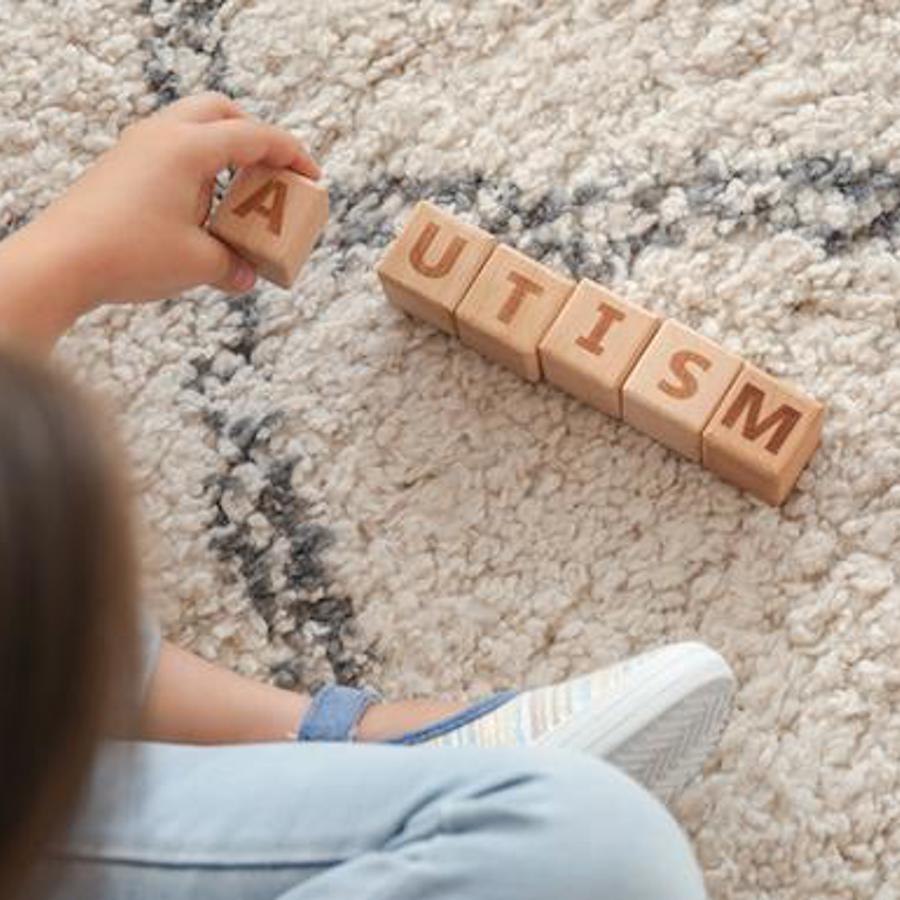
If the incidence of autism is growing, how is there a genetic cause?
March 31, 2006

A curious adult from California asks:
"If the incidence of autism has increased 10-fold in the last 10 years (faster than a genetic mutation), then why are scientists still looking for a genetic cause?"
Editor’s note (8/24/2021): In the time since this article was written, we have learned a lot more about Autism Spectrum Disorder and its causes. Today, there are hundreds of genes that have been found to have some association with ASD.7-9
What a great question! Autism is probably caused by a combination of genes and the environment. Genes may not always cause autism on their own, but they can make somebody more or less likely to get autism. Finding which genes do this might help us to figure out the best ways to help people with autism.
What is autism?
In the movie Rain Man, Dustin Hoffman plays the role of an autistic man. He doesn't know how to interact with people very well. He likes everything to be the same every day. He likes to rock back and forth and he has amazing math abilities.
This was a portrayal of one version of autism. But not all cases of autism are like this, as autism isn't really a single disorder. Nowadays, the different types of autism are referred to as the "autistic spectrum." This means that different people are affected differently.
Some autistic people are unable to speak or socialize at all. Other people have more mild symptoms of autism. They can communicate, but don't know how to interact with other people very well. Many people with autism are very smart, but not everyone has amazing abilities at certain things like math or music.
Causes of autism
We don't know exactly what causes autism, but we do know that both genes and the environment are involved. We know this because of twin studies. Remember, identical twins have the exact same DNA. So if autism were completely genetic, then if one identical twin had autism, the other one always would too.
In fact, if one twin has autism, the other twin could have autism up to 90% of the time (depending on the study).1,4 This means that genes are not the only cause of autism, but they are important.
Now you might be thinking, "But wait a minute. Identical twins also usually live in the same house, drink the same water, eat the same food, and have the same environment. How do we know genes have anything to do with autism?"
To figure out how important the environment is, scientists also look at fraternal twins. Fraternal twins share the same environment, but do not have identical DNA. They only share as much DNA as any brother or sister. If only the environment is important, then the identical and fraternal twin studies would give the same results.
But if one fraternal twin has autism, the other twin has a very low chance of having autism.1 This is much less than what was seen with identical twins. So the environment can't be the whole story. Genes must be important too.

Growing rates of autism
You are right that the rate of autism has increased a lot over the past 10 years. And it is unlikely that much of this increase is caused by new genetic mutations. Genes just don't mutate in that many people that fast.
Exactly what is causing this increase is not known. Part of it is probably due to more people knowing about autism.2-4 This means that more people are being diagnosed just because more parents, teachers, and doctors know what the symptoms are. But most people think that this is not the whole story.
So what else is happening? The mutations in genes that make somebody more likely to get autism have probably been there all along. But something in our changing environment might now be triggering the disease much more often than before.
Some people have blamed complications during pregnancy or childbirth.1 Others have blamed diet. Some people have blamed a chemical in vaccines (called thimerosal) that was used as a preservative. As a precaution, most vaccines are now being made without this chemical, although there is little evidence that vaccines with thimerosal caused an increase in autism cases.1,5,6
None of these environmental things have been proven to be a "cause" for autism. It is likely that different things in the environment can trigger autism in different people.

Genetics and disease
What good does it do to look for changes in genes in autistic people, if we know genes are not everything? It can help us identify people early who might get it so that they can get treatment as soon as possible. It may also provide some clues about what in the environment is triggering it.
Let's see how understanding the genetics of a disease can help in a simpler situation -- a disease called phenylketonuria (PKU). This disease is caused by a mutation in a gene that makes it so that people cannot break down a protein found in most foods.
In people with PKU, this protein builds up in the bloodstream, which causes brain damage and intellectual disabilities.
But if people with PKU are put on a special diet where they don't eat any of this protein, they are fine. Both genetics and environment are important in this disease. Understanding the genetics helped to find a solution to prevent brain damage.
Something similar could be done for autism. If someone has a change in a certain gene that makes it more likely they'll get autism, perhaps there are things that can be done. For example, what if an autism gene were similar to the PKU gene? In this case, symptoms could be prevented by not eating certain foods.
Of course, autism will most likely not be so simple, since there are lots of genes involved. People can get autism with various combinations of changes in these genes. And each genetic combination may have different environmental triggers!
We already know of at least 7 genes that might be involved in autism. Different people probably have different combinations of changes in these genes. Still, learning which genes are involved and what they normally do will ultimately help us to find better solutions.
Despite the fact that we don't know exactly what causes autism, a diagnosis of autism is not as scary as it used to be. The earlier you get a diagnosis, the better. Autistic people can be helped. And when autistic people get help early, many are able to live normal and productive lives.

Author: Dr. Kim Matulef
When this answer was published in 2006, Kim was a postdoctoral fellow in the Department of Molecular and Cellular Physiology, studying chloride ion channels and transporters in Merritt Maduke’s laboratory. Kim wrote this answer while participating in the Stanford at The Tech program.
 Skip Navigation
Skip Navigation
